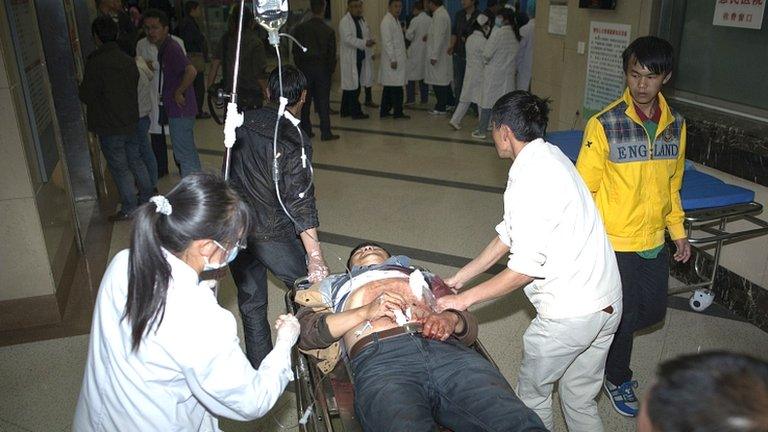China Xinjiang: Violence 'kills or injures dozens'
- Published
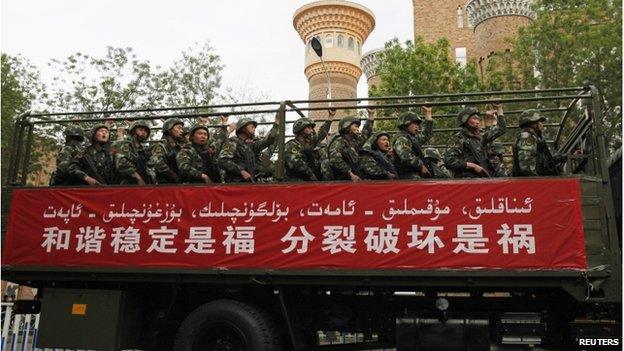
Chinese authorities have stepped up the security presence in key Xinjiang towns and cities
Dozens of people have been killed or injured in violence in China's Xinjiang region on Monday, state media say.
A knife-wielding gang attacked a police station and government offices in Shache county, Xinhua news agency said.
Police shot dead many attackers, it said, and "dozens" of Uighur and Han Chinese civilians were killed or hurt.
Confirming incidents is difficult, as information is tightly controlled. Activists said the violence erupted as Uighurs protested against a crackdown.
Xinhua said that more than 30 police cars had been damaged or destroyed in the "terror attack", six of them burnt out.
Quoting local police, it said "dozens of Uighur and Han civilians were killed or injured".
According to Xinhua, the gang began their attack in the township of Elixku before moving to another nearby settlement, attacking civilians and vehicles on the way.
"Police officers at the scene shot dead dozens of members of the mob," the report added.
Earlier a Chinese official told the BBC that 13 Han Chinese people had been killed in the outbreak of violence, the latest to hit the troubled region.
US-based activist group The Uyghur American Association, external, however, citing unidentified local sources, said that local Uighurs were protesting "against Chinese security forces' heavy-handed Ramadan crackdown... and extrajudicial use of lethal force in recent weeks in the county".
On 18 July, the association said, a Uighur family had been killed in a nearby township. Many other families had subsequently fled to Elixku, where Monday's protest erupted.
Another group, the Germany-based World Uyghur Congress, told AFP news agency "Uighurs rose up to resist China's extreme ruling policy". A spokesman, Dilxat Raxit, put the number of dead and injured at about 100, citing local sources.
None of these accounts can be independently confirmed and it is not clear why official media took so long to report the violence.
Chinese clampdown
Shache county, also called Yarkant county, lies in Xinjiang's far west near the border with Tajikistan.
The area is seen as the heartland of the region's Muslim Uighur ethnic minority.
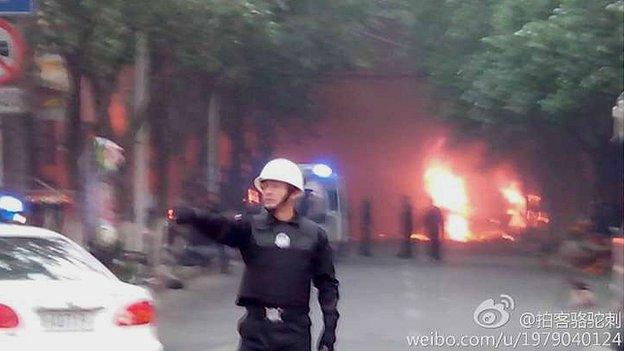
Violence has increased in Xinjiang in recent months, including this attack on an Urumqi market
Tensions between Uighurs and Han Chinese migrants have been rumbling for years, with some Uighurs opposing Chinese rule in Xinjiang.
In 2009, large-scale ethnic rioting between Han Chinese and Uighur communities in Xinjiang's capital, Urumqi, left some 200 people - mostly Han Chinese - dead.
But in recent months there has been an upsurge in Xinjiang-linked violence that authorities have attributed to Uighur separatists.
In May at least 31 people were killed when two cars crashed through an Urumqi market and explosives were thrown. In March, a mass stabbing at Kunming railway station killed 29 people.
In response Chinese authorities have launched a year-long security campaign which includes increased police and troop presence in key cities and towns in Xinjiang.
Dozens of people have been detained and jailed for alleged extremist offences, some in public mass sentencing sessions.
But Uighur activists and rights groups say an increasingly oppressive Chinese clampdown on Uighurs' religious and cultural affairs is further fanning resentment.
China, meanwhile, says it is investing heavily in the region to improve people's lives and attributes Xinjiang violence to "terrorists" inspired by overseas Islamist groups.
- Published23 May 2014
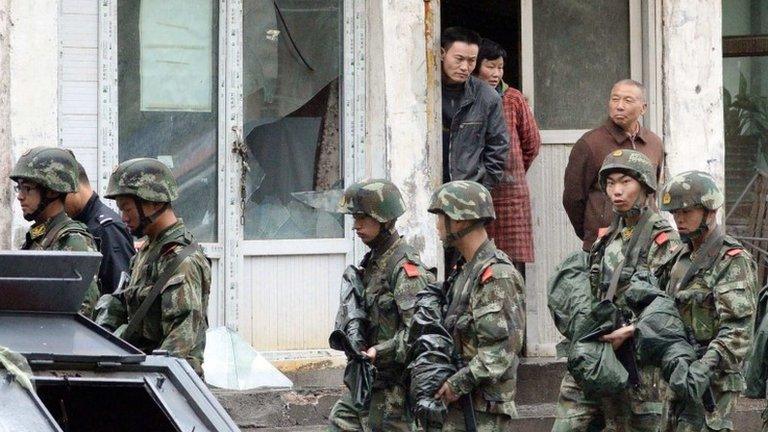
- Published26 September 2014
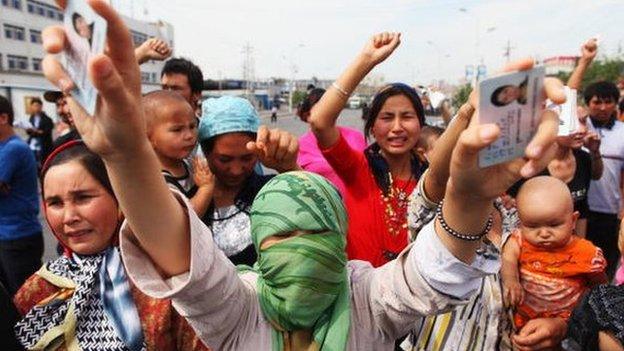
- Published23 May 2014
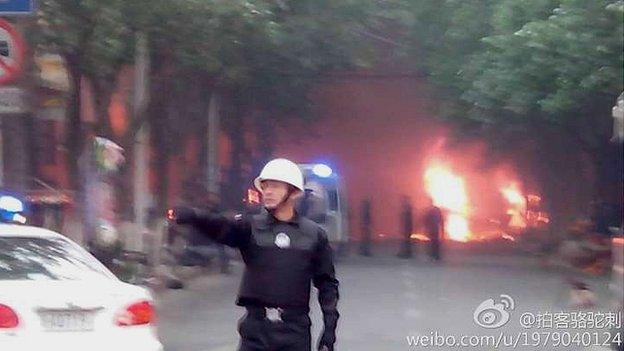
- Published2 March 2014
